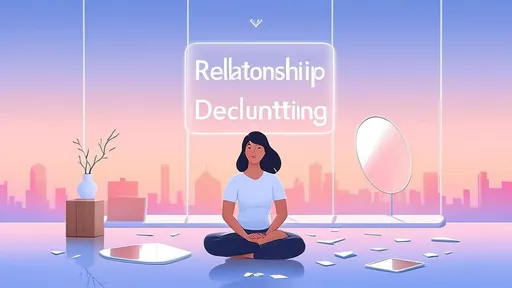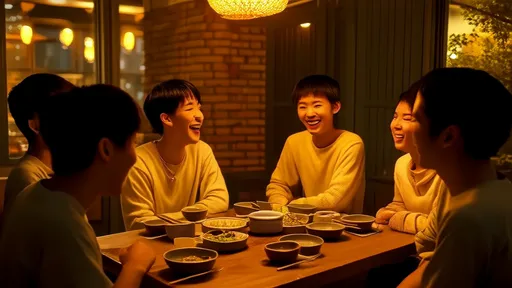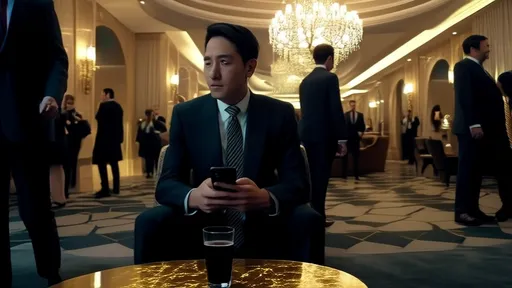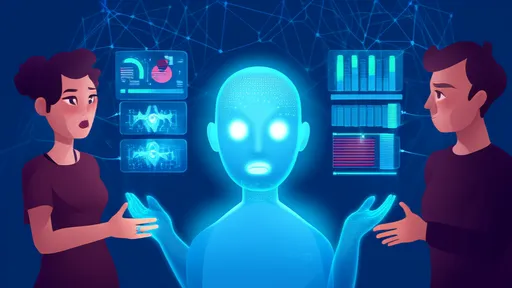In dimly lit restaurants from Berlin to Brooklyn, a quiet rebellion against digital intrusion is unfolding. Young professionals arrive clutching paperback books or handwritten notes—anything but their smartphones. These gatherings, dubbed "Phone-Free Dinner Clubs," have become the physical manifestation of a growing "anti-algorithm socialization" movement sweeping through Gen Z and millennial circles.
The concept is deceptively simple: participants surrender their devices at the door, engaging in uninterrupted conversation while sharing meals. What began as small gatherings among friends has evolved into organized events with waitlists stretching months. "We're not Luddites rejecting technology altogether," explains Sofia Martinez, a 28-year-old graphic designer who hosts a monthly dinner series in Barcelona. "We're creating spaces where human interaction isn't mediated by apps designed to hijack our attention."
Psychologists point to this trend as a visceral response to algorithmic fatigue. Constant exposure to curated content and engagement-optimized platforms has left many feeling like passive consumers rather than active participants in their social lives. The dinners reclaim something primal—the unfiltered exchange of ideas, the awkward pauses, the spontaneous laughter that algorithms can't predict or monetize.
Restaurants participating in these events report unusual observations. Without phones to distract them, diners linger longer, ordering additional courses and drinks. Conversation volumes create a distinctive hum absent from typical establishments where patrons stare silently at screens. Some venues have even removed QR code menus for these nights, printing physical copies to complete the digital detox.
The movement isn't without its ironies. Many discover these dinners through—of all places—social media. Clever marketing tactics leverage the very platforms participants seek respite from, with viral videos showing what happens when people actually talk to each other. This paradox highlights the complex relationship modern users have with technology: simultaneous dependence and resentment.
Cultural critics see deeper significance in these gatherings. In an age where dating apps optimize first dates and AI suggests conversation topics, the dinners represent a reclamation of social agency. "There's something radical about not knowing someone's Instagram handle before learning their childhood nickname," remarks sociologist Dr. Elijah Thompson, who has studied the phenomenon. "These spaces allow for the messy, unquantifiable aspects of human connection that defy data science."
Practical challenges emerge, of course. Some participants confess to phantom vibration syndrome—reaching for nonexistent phones. Others struggle through initial awkwardness, having forgotten how to navigate social situations without digital crutches. But regular attendees describe unexpected benefits: improved concentration, deeper conversations, and the novel experience of truly remembering details about new acquaintances without relying on digital profiles.
The movement's ripple effects extend beyond dining. Bookstores report increased interest in conversation starter card decks. Board game cafes near dinner club locations see surges in business as participants continue their analog evenings. Even luxury watch sales have ticked upward among attendees—when you can't check your phone, telling time becomes a necessity rather than a reflex.
As with any countercultural trend, commercialization looms. Some worry about the dinners losing their authenticity as brands attempt sponsorship deals or influencers treat them as content opportunities. Purists have begun implementing "no social media mentions" rules, protecting the gatherings from becoming mere aesthetic exercises in digital minimalism.
What began as resistance to algorithmic socialization may be evolving into something more profound—a reevaluation of what meaningful connection means in the digital age. The phone-free dinner clubs don't just remove technology; they create space for the unscripted, inefficient, gloriously human interactions that no app can replicate. In doing so, they offer a compelling alternative to the performance-driven interactions that dominate online spaces.
The movement's staying power remains uncertain, but its immediate impact is undeniable. Participants leave these dinners with something increasingly rare: stories untold through screens, connections unmediated by platforms, and the quiet satisfaction of having been truly present. In a world engineered to distract, that simple experience feels nothing short of revolutionary.

By /Jul 28, 2025

By /Jul 28, 2025

By /Jul 28, 2025

By /Jul 28, 2025

By /Jul 28, 2025

By /Jul 28, 2025

By /Jul 28, 2025

By /Jul 28, 2025

By /Jul 28, 2025

By /Jul 28, 2025

By /Jul 28, 2025

By /Jul 28, 2025

By /Jul 28, 2025

By /Jul 28, 2025

By /Jul 28, 2025

By /Jul 28, 2025

By /Jul 28, 2025

By /Jul 28, 2025

By /Jul 28, 2025

By /Jul 28, 2025